Welcome to Flash Pulp, Episode Sixty-Nine.
 Tonight, we present Koyle’s Ferry: A Blackhall Tale, Part 3 of 3
Tonight, we present Koyle’s Ferry: A Blackhall Tale, Part 3 of 3
(Part 1 – Part 2 – Part 3)
[audio:http://traffic.libsyn.com/skinner/FlashPulp069.mp3]
Download MP3
(RSS / iTunes)
This week’s episodes are brought to you by the Relic Radio family of podcasts.
Jim, host of the Relic Radio podcasts, is a man of mystery, suspense, thrills, chills and even science fiction.
Hear his dulcet tones, as well as hours of fantastic old time radio content at RelicRadio.com, or search for it via iTunes.
Flash Pulp is an experiment in broadcasting fresh pulp stories in the modern age – three to ten minutes of fiction brought to you Monday, Wednesday and Friday evenings.
In this final chapter of our current serialization, Blackhall calls upon John Koyle, the ferryman, to discuss his recent travels.
Flash Pulp 069 – Koyle’s Ferry: A Blackhall Tale, Part 3 of 3
Written by J.R.D. Skinner
Art and Narration by Opopanax
and Audio produced by Jessica May
As night once again began to fall, the chill water held little hospitality. Even then, Blackhall felt that he could only wait and hope the carcajou moved along of its own accord. He’d made his way, with careful precision, as near to shore as he dare – and yet he could still hear the animal feeding, and he had no interest in overusing his well stretched good fortune.
The glutton had spent the long hours of daylight working at picking clean the barricade of the dead. As Thomas attempted to remain deathly silent, the thing would balance along the fallen timber, stopping once it was ready to pull one of the ferryman’s bobbing victims from the hooks of the jagged tree limbs. It would then drag the intended meal to shore and begin its grizzly consumption. The process struck the nearly drowned man as being carried out as tidily as a scullery maid might purchase a packet of cow flesh at the butchers.
Although the thing was but the size of a large dog, the scraps of half-eaten attire that littered the animal’s chosen dining hall spoke to its fixedness of appetite.
As it ate, the frigid water ran endlessly over Blackhall, drawing the heat away until his kidneys ached at the flow which rocked him against the tree frames. His hands had long numbed, and were now little more than frozen talons. As he felt the weight of the scavenger once again settle onto its feeding path, he nearly wept.
Even over the burble, he could hear it snuffling at the the water’s edge, inspecting for further meat.
He briefly considered simply letting go – given his exhausted state, a sure death, but certainly better than being discovered by the approaching carrion eater. He’d once seen such a beast, smaller still than the one with which he was currently engaged, kill a bull moose that had become ensnared in deep snow. As the bull bellowed his dismay, the claws of the hunter had quickly carried out bloody work upon the blanket of white.
Mairi’s voice came to him then, from a place deep in his ear, where the cold could not reach. It spoke to him the words of her letter, which still lay sealed in the container that rhythmically tapped his chest in the draft and draw of the perpetual deluge.
Thomas –
If you need me, I shall come crashing as if the ocean upon the shore; I shall come running as if a river rushing from the great water; I shall come thundering as if a storm, laying low the land with flood and thunder and fire.
Always,
Mairi
A promise made on her part, and a standard to meet on his.
He felt the beast close now, but his patience was at an end. If he was meant to die, he knew it was meant to be on his feet, walking the long path to his dead wife.
The weight of his frozen body, as he pulled himself onto the gnarled pine, brought forth a burly grunt from his frost-burnt lungs. He’d not realized the proximity of the animal, and for the briefest of moments both stood still at their sudden encounter.
His foot moved with an alacrity that he could not account for, and that the glutton had obviously little suspected. His furious boot, powered by the expenditure of his frustration, sent the wolverine flying into the water, as if no more than a house dog at the brute-end of its master’s wrath.
 It was not the animal that lay at the heart of his anger, however, and so began Blackhall’s return along the river’s edge, during which he could only be thankful that his course was so clearly marked by the banks of the rushing water. Each step brought another measure of warmth, but it was nought in comparison to the heat of the rage that built in his breast.
It was not the animal that lay at the heart of his anger, however, and so began Blackhall’s return along the river’s edge, during which he could only be thankful that his course was so clearly marked by the banks of the rushing water. Each step brought another measure of warmth, but it was nought in comparison to the heat of the rage that built in his breast.
There’d been little opportunity to think as he’d clutched the deadfall, but the long path to his point of origin left much time to ruminate; on the near nature of his survival; on the treacherous and petty nature of the murderous thief; on the near end of his search for Mairi – and thus her eternal loss.
As he finally broke into the clearing of Koyle’s homestead, his hands shook and his jaw worked at a slow grinding of its own accord.
His legs picked up speed as they carried him around the corner of the residence, but he was brought to a halt by the sight of the man, in his boat, nearly half way to the far bank. It was impossible to know if he’d simply gone for a pleasure journey, or if another passenger had been consigned to float downstream, but the ferryman rode alone.
“Mayhaps it is my turn to shorten the journey.” Blackhall said, pushing open the door to the house. Quickly locating two oil lamps, he lit each from the morning fire’s coals and carried both back into the creeping sunlight.
He did not look to measure his transgressor’s progress as he exited and approached the first of the barns. Throwing wide the doors he made quick work of the pens that held the cows, and the catching fire amongst the straw brought further incentive to their evacuation.
He was not so expedient in the second barn.
Where he’d expected further live stock, instead he encountered something he could only consider a site of ritual. The cavernous walls of the outbuilding were filled with the stolen clothing of the dead, pinned, as if bugs, into fleshless tableaus of civilization. On his right the cocked arms of an empty dress seemed to pour and offer tea to a vacant suit. The pair appeared as if kneeling upon a blanket, on which also rested the swaddling of an unseen child.
With closer inspection, Thomas identified the scene as cleverly hung with nails. There was little space left for further work, even the hayloft ladder was adorned as if a small child were attempting the climb.
Ripping down the mocking imitation of life, he made his way to the upper area. The loft itself was also full, but with the husks of emptied luggage, and items likely as yet unsorted.
It was his hat that he first identifed: placing the broad brim upon his head, he was thankful that Koyle’s avarice must have lead the ferryman to pluck it from the water. His satchel and Baker rifle were also amongst the discards, but a search by the light of the remaining hurricane lamp did little towards locating his sabre. It was only once he’d descended the ladder and made further inspection of the displayed scenes that he located his weapon.
The knicked blade rest upon two long spikes, the surrounding representation made to look as if the shell of a royal were knighting the shell of a peasant.
Thomas could take no more. Lifting the hilt with his free hand, he cast the remaining lantern against the far wall. Three figures, formed to mimic men covering mouth, eyes and ears, quickly caught flame. In moments the fire had engulfed many of Koyle’s impersonations.
Kicking loose a slat from the ladder, Blackhall wrapped the end in a still unsinged undershirt, and set it to the heat.
He did not care to leave a job half finished, and he had mind to return once again to the main-house.
His travels were cut short by the barn-owner’s appearance at the door, the billowing black having drawn him back. The dismay on the ferryman’s face was drawn sharp by the visage of the frontiersman approaching from amongst the smoke of his works, a sabre in one hand and a flaming torch in the other.
He’d given his intended speech much consideration as he’d approached, and yet, at the sight of Koyle, Blackhall’s tongue was laid heavy by the weight of his anger.
“How many wives? How many husbands?” was all he could manage.
Thomas did not match Koyle’s pace as the man sprinted back into the yard, but he moved steadily on, following him to the river’s edge. The boatman set his craft upon the water in a single smooth motion, but his rowing had made little distance as Blackhall took the shore, and it was a short throw to deposit the smoldering slat upon the floor of the launch.
The oarsman had no choice but to carry the load, as his need for haste was made clear by the unslinging of Thomas’ rifle. Before he’d covered a quarter of the distance, a blaze danced along the stern.
At the halfway point, Blackhall took steady aim and shattered an oar as it plunged against the water.
Koyle began to curse his former victim extravagantly, although few of his words actually reached the Rideau’s eastern bank. Thomas replied by applying his Baker rifle to drilling two sharp holes at the boat’s bobbing tide-mark.
With a final shout, the ferryman lept from his sinking pyre.
The man’s ragged form slipping into Ophelia’s rapids was the last any but the glutton would see of him.
Flash Pulp is presented by http://skinner.fm. The audio and text formats of Flash Pulp are released under the Canadian Creative Commons Attribution-Noncommercial 2.5 License.
![]() Tonight, we present Joe Monk, Emperor Of Space: Groupthink, Part 3 of 3
Tonight, we present Joe Monk, Emperor Of Space: Groupthink, Part 3 of 3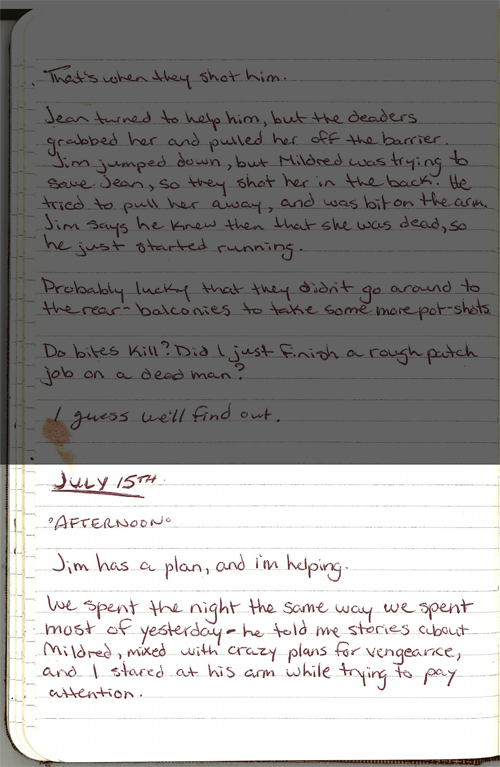
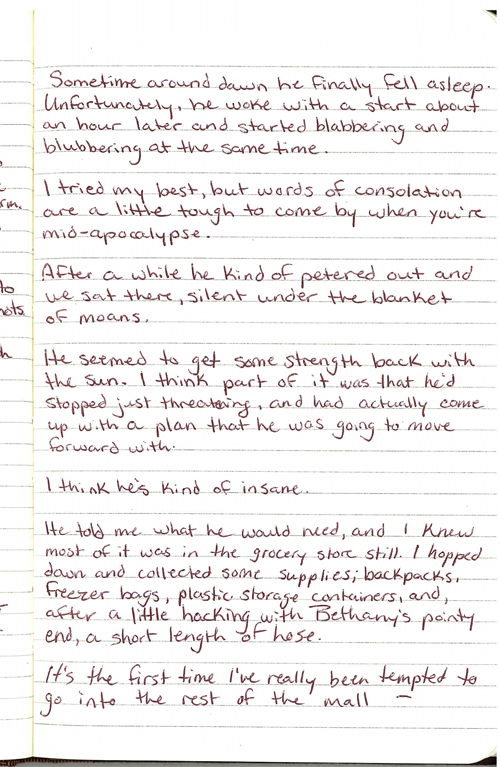
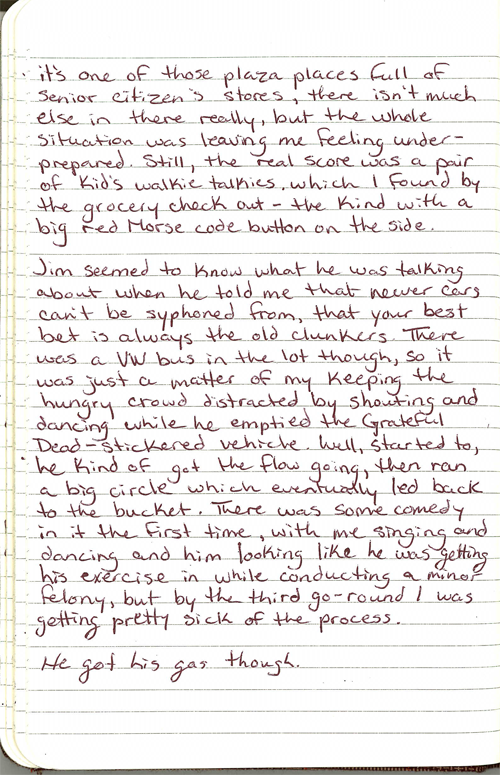
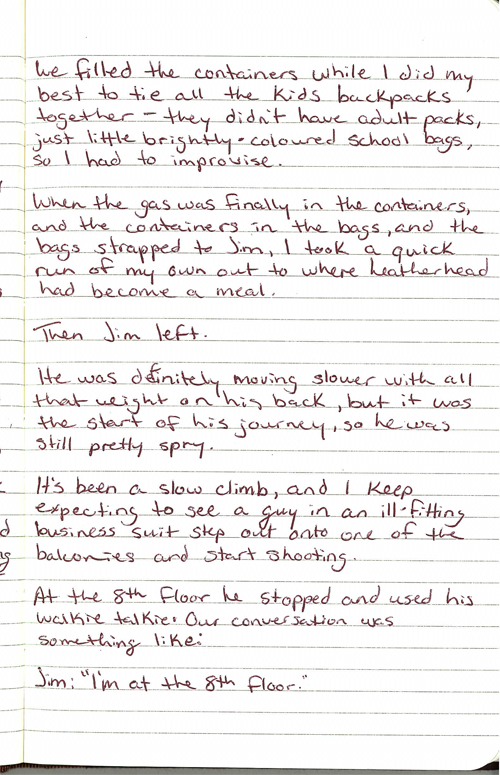

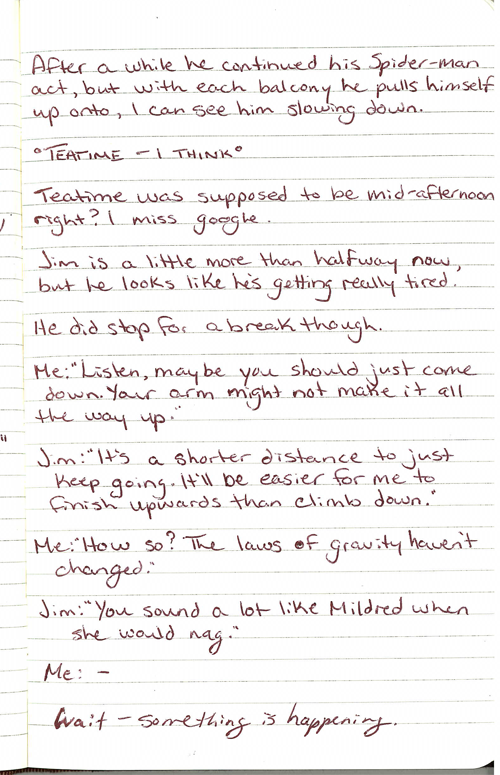


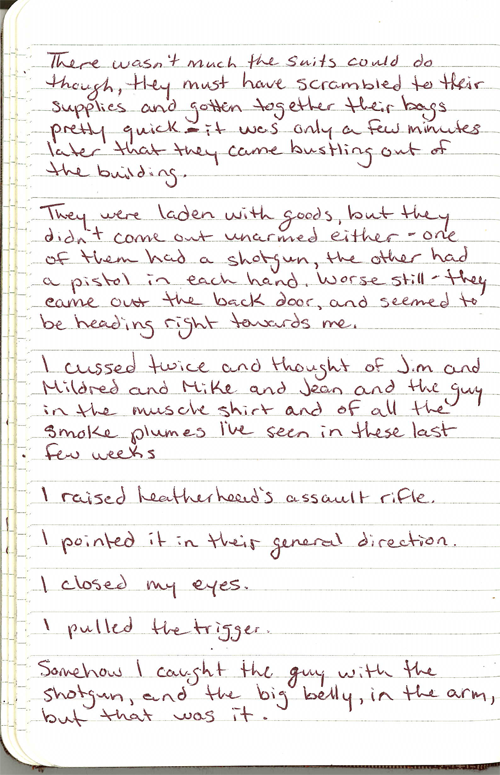

 The first shot was Melnor’s, and well placed. Blackhall clearly saw the spreading crimson upon the tall man’s chest, and Thomas was sure it was the aging stranger’s turn to topple. After a moment, however, Ludwig seemed to collect himself, despite the neat hole in his waistcoat.
The first shot was Melnor’s, and well placed. Blackhall clearly saw the spreading crimson upon the tall man’s chest, and Thomas was sure it was the aging stranger’s turn to topple. After a moment, however, Ludwig seemed to collect himself, despite the neat hole in his waistcoat. Mulligan stepped into the reception hall, a slurpee in his hand.
Mulligan stepped into the reception hall, a slurpee in his hand.